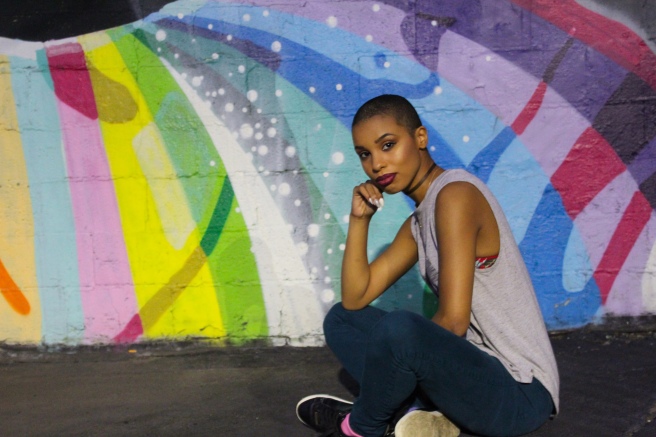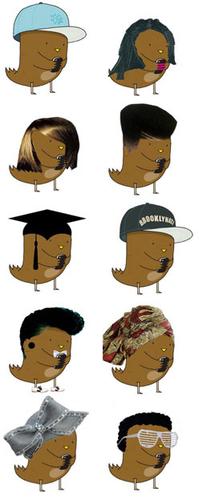Everyone and their mothers have heard about the hype surrounding Black Panther: the installment of the Marvel Cinematic Universe that broke records and glass ceilings and whose impact can be seen around the nation.
Even I, a stoic badass who has no time for tears, found myself tearing up about 15 minutes in. And again 5 minutes later. And again at the end of the movie. There was just something so impactful about seeing powerful, strong, sexy Black people in a blockbuster movie that’s not about slavery.
Surprisingly, I’m not here to talk about how incredible Black Panther is. I’m here to talk about me. More specifically, I’m here to talk about this:
I shaved my head.
During Black Panther’s end credits, through my torrential tears, I turned to my friend Noelle and said: “I wanna shave my head.” After making sure I wasn’t making an impulsive decision I’d regret later, she drove me to Walmart so I could buy a razor, and then she shaved all my hair off.
For those of you who know me, you know that my hair has always been a big part of my identity. I’ve been cutting and dying it since I was 14, and I consider it an extension of my personal style and ~creative expression~.
Though I’ve done just about every short style under the sun, I never pictured myself going bald. For Black women everywhere, hair has always been an important element of beauty and culture.
Anti-Black racism across the world has created a global culture that prefers straight hair. Many Black women, including myself, grow up thinking that their natural hair can’t be appropriate, professional, or beautiful.
I tried to go natural right before I started college, but I wasn’t ready. Though at the time I appreciated the beauty of Black people’s natural hair, I couldn’t accept those same styles on myself.
After less than a year, I found myself back at the salon, getting my hair pressed once again. I told everyone that straight hair that I didn’t have to detangle fit into my college schedule which was partially true, but it wasn’t why I went back to straightening my hair.
I didn’t know how to love myself with my natural hair because growing up, I never had any role models with hair like mine. My standard of beauty was entirely centered around Eurocentric ideals, and the blackest thing about me has always been my kinky, coily, untameable hair.

I shaved my head as an act of rebellion against these ideals. I shaved my head because I am not my hair. I shaved my head to show myself that I don’t need hair to be beautiful.
I don’t want any more little Black girls to feel like they have to have long, straight hair to be beautiful. In all honesty, I don’t want anyone to feel like they have to be beautiful or anything other than who they are.
To me, Black Panther is about more than just the addition of a Black superhero. It’s about giving little Black boys and girls people to look up to. People they can aspire to be like without feeling like they have to discard their culture or change parts of themselves.





















